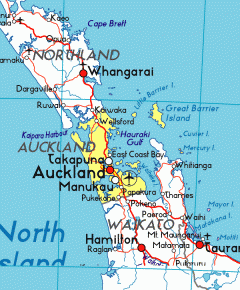Building and Housing Minster Nick Smith released the government’s proposed National Policy Statement (NPS) on Urban Development Capacity this afternoon.
The announcement of the NPS follows weeks of heightened concern about Auckland’s severe shortage of housing stock and the resulting problems, like affordability issues and increasing homelessness.
While the NPS will apply to all councils around New Zealand, it is most relevant to councils in high-growth areas – particularly Auckland.
Smith said the policy is carefully nuanced to the different growth pressures across New Zealand’s towns and cities.
“There are requirements for all urban areas but the analysis and directions become greater for medium growth areas (between 5 and 10% in a decade) and most demanding in high-growth areas (more than 10% in a decade).”
The NPS requires councils to:
• Provide sufficient land for new housing and business to match projected growth in their region, city or district plans.
• Monitor and respond to housing affordability data, building and resource consent data, and value of land on the urban boundaries.
• Take into account the difference between planned and commercially feasible development capacity, and provide for over-supply to ensure competition (20% short to medium-term, 15% long-term).
• Co-ordinate their infrastructure and ensure their consenting processes are customer focused.
• Recognise the national significance of ensuring sufficient land is available over local interests.
Smith told media the NPS, with the Resource Management Act, gives the government the power to direct changes if the Auckland Council does not agree to a Unitary Plan that meets its long term development capacity requirements.
However, he also said it meant the government wouldn’t need to appoint Commissioners to run Auckland in such a scenario, as was earlier threatened.
The NPS does not prescribe whether councils need to develop up or out –rather it simply instructs councils to provide sufficient land to match population growth.
It also does not contain provisions for infrastructure development costs.
Infrastructure funding is a fraught issue, particularly given the cash-strapped situation of some councils, but Smith said developers would still be responsible for most of such costs.
Response from housing market commentators was mixed.
Labour’s housing spokesperson Phil Twyford, who has been calling for the abolition of Auckland’s urban growth boundaries, was not happy with the NPS.
He said it was a damp squib, not a game-changer, which was unlikely to make much difference to Auckland’s out-of-control housing crisis.
Rather land-bankers and speculators will read the NPS and rub their hands with glee, Twyford said.
"It fails the two crucial tests. It has nothing to say about how infrastructure will be financed, leaving Auckland ratepayers to wonder whether they will be left to pay the $17 billion cost of new infrastructure needed to support Auckland’s growth.
"And it says nothing about abolishing the urban growth boundary and replacing it with a smarter way of managing urban growth.”
Property Institute chief executive Ashley Church came out in support of the NPS and the directives in it.
But he said it is just one of many steps that will need to be taken if house price inflation is to be reduced over time
Councils which have been dragging their feet on this issue for a mixture of reasons related to ideology and cost will “no longer be able to hold cities to ransom”, Church said.
“Councils which have used the cost of infrastructure as an excuse not to open up green-fields will now need to look more carefully at their spending priorities and may need to move a few vanity projects further down the list. They need to see infrastructural spending as an investment rather than a burden”.
He added that freeing up land will not bring down house prices, although it may help to slow down the rate at which they increase.
The draft National Policy Statement on Urban Development Capacity is open for submissions until Friday 15 July.
The government aims to finalise the policy for it to take effect in October this year, in conjunction with the RMA changes and Auckland’s new Unitary Plan.



 Search
Search
